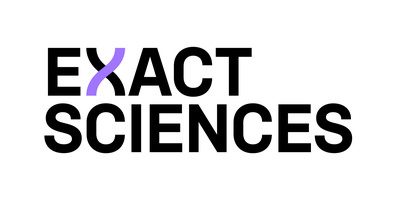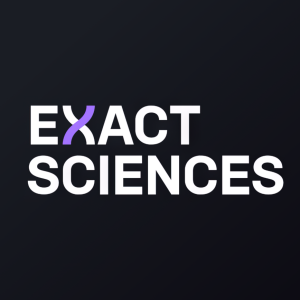Exact Sciences Presents Advancements in Cancer Detection at American Association for Cancer Research® 2023 Annual Meeting
Exact Sciences (NASDAQ: EXAS) announced advancements in cancer detection at the AACR Annual Meeting 2023 in Orlando, Florida, from April 14-19. The company emphasizes the efficiency of advanced imaging after a positive multi-cancer early detection (MCED) test for identifying tumor locations. Preliminary findings suggest potential for molecular residual disease (MRD) detection technologies in monitoring cancer recurrence post-therapy. Key presentations include data showing fewer diagnostic procedures needed with advanced imaging compared to molecular testing, and promising results from tumor-informed MRD methodologies in distinguishing cancer samples. The developments could enhance early detection strategies and improve treatment decision-making for patients.
- Data supports advanced imaging as a superior method for tumor localization post-MCED test.
- Preliminary MRD detection technologies show promise for monitoring cancer recurrence after therapy.
- Presentations showcase notable progress in cancer screening and diagnostic tools.
- None.
Insights
Analyzing...
- Research from
Exact Sciences' multi-cancer early detection (MCED) program supports advanced imaging as an optimal and potentially more efficient strategy for identifying cancerous tumor location following a positive MCED test result1
Exact Sciences presents preliminary data showing promise of molecular residual disease (MRD) detection technologies for detection of cancer recurrence post therapy2
"Our data at AACR show notable progress across our pipeline of cancer tests, from screening to late-stage therapy selection," said
Data presentations across
Poster #769: Evaluating the diagnostic burden of tumor localization strategies for multi-cancer early detection tests
Data embargoed until
Authors: Tyson, C, et al.
Date/Time:
Location: Section 28
Summary: In this analysis, advanced imaging identified the tissue of cancer origin following a positive MCED test resulting in fewer procedures to achieve cancer diagnosis when compared to molecular testing.
Poster #6694: Evaluation of a multi-omics approach to molecular residual disease detection
Data embargoed until
Authors: Culver B, et al.
Date/Time:
Location: Section 40
Summary: MRD methodologies developed using variants specifically derived from the patient tumor (tumor-informed) and a pre-defined set of markers (tumor-agnostic) showed high concordance in cancer detection and complemented each other in differentiating cancer samples from non-cancer samples.
Poster #770: Provider communication contributes to colorectal cancer screening intention through improving screening outcome expectancies and perceived behavioral control
Data embargoed until
Authors: Zhu X, et al.
Date/Time:
Location: Section 28
Summary: Improving health care provider communication with patients regarding beliefs about the effectiveness and ease of use of multi-target stool DNA screening may contribute to colorectal screening completion.
Poster #2150: CLDN18/ARHGAP26 in gastric cancers
Data embargoed until
Authors: Josefson D, et al.
Date/Time:
Location: Section 39
Summary: OncoExTra™, an ultra-comprehensive DNA and RNA-based genomic test, was used to examine the prevalence of gastric cancer fusion CLDN18/ARHGAP26, that has been known to appear more often in young females and is associated with a poor prognosis and higher likelihood of metastasis.
About
A leading provider of cancer screening and diagnostic tests,
NOTE: OncoExTra, Oncotype, Oncotype DX, Oncotype DX Breast Recurrence Score, Oncotype DX Breast DCIS Score and Recurrence Score are trademarks or registered trademarks of
Forward-Looking Statements
This news release contains forward-looking statements concerning our expectations, anticipations, intentions, beliefs or strategies regarding the future. These forward-looking statements are based on assumptions that we have made as of the date hereof and are subject to known and unknown risks and uncertainties that could cause actual results, conditions and events to differ materially from those anticipated. Therefore, you should not place undue reliance on forward-looking statements. Examples of forward-looking statements include, among others, statements we make regarding expected future operating results; our strategies, positioning, resources, capabilities and expectations for future events or performance; and the anticipated benefits of our acquisitions, including estimated synergies and other financial impacts.
Important factors that could cause actual results, conditions and events to differ materially from those indicated in the forward-looking statements include, among others, the following: our ability to successfully and profitably market our products and services; the acceptance of our products and services by patients and healthcare providers; our ability to meet demand for our products and services; our reliance upon certain suppliers, including suppliers that are the sole source of certain products; the willingness of health insurance companies and other payers to cover our products and services and adequately reimburse us for such products and services; the amount and nature of competition for our products and services; the effects of any judicial, executive or legislative action affecting us or the healthcare system; recommendations, guidelines and quality metrics issued by various organizations regarding cancer screening or our products and services; our ability to successfully develop new products and services and assess potential market opportunities; our ability to effectively enter into and utilize strategic partnerships and acquisitions; our success establishing and maintaining collaborative, licensing and supplier arrangements; our ability to obtain and maintain regulatory approvals and comply with applicable regulations; the results of our validation studies and clinical trials, including the risks that the results of future studies and trials may differ materially from the results of previously completed studies and trials; our ability to manage an international business and our expectations regarding our international expansion and opportunities; our ability to raise the capital necessary to support our operations or meet our payment obligations under our indebtedness; the potential effects of changing macroeconomic conditions, including the effects of inflation and interest rate and foreign currency exchange rate fluctuations and any such efforts to hedge such effects; our ability to efficiently and flexibly manage our business amid uncertainties related to the coronavirus ("COVID-19") pandemic; the possibility that the anticipated benefits from our business acquisitions will not be realized in full or at all or may take longer to realize than expected; the possibility that costs or difficulties related to the integration of acquired businesses' operations or the divestiture of business operations will be greater than expected and the possibility that integration or divestiture efforts will disrupt our business and strain management time and resources; the outcome of any litigation, government investigations, enforcement actions or other legal proceedings; our ability to retain and hire key personnel; and the impact of labor shortages, turnover, and labor cost increases. The risks included above are not exhaustive. Other important risks and uncertainties are described in the Risk Factors sections of our most recent Annual Report on Form 10-K and any subsequent Quarterly Reports on Form 10-Q, and in our other reports filed with the
References
[1] Tyson C, et al. Abstract #769, AACR 2023.
[2] Culver B, et al. Abstract #6694, AACR 2023.
[3] Zhu X, et al. Abstract #770, AACR 2023.
[4] Josefson D, et al. Abstract #2150, AACR 2023.
Contacts
Media ( | Media (OUS): | Investors: |
Jack Hirschfield | Federico Maiardi | Megan Jones |
+1 608-852-9877 | +41 79-138-1326 | +1 608-535-8815 |
![]() View original content to download multimedia:https://www.prnewswire.com/news-releases/exact-sciences-presents-advancements-in-cancer-detection-at-american-association-for-cancer-research-2023-annual-meeting-301795964.html
View original content to download multimedia:https://www.prnewswire.com/news-releases/exact-sciences-presents-advancements-in-cancer-detection-at-american-association-for-cancer-research-2023-annual-meeting-301795964.html
SOURCE








